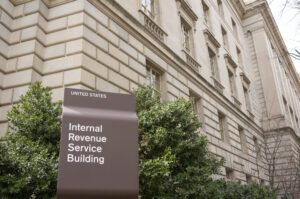Executive Summary:
- Selling your primary residence can come with the burden of capital gains tax. However, the IRS’s Section 121 Exclusion can significantly alleviate this by allowing individuals to exclude up to $250,000 in capital gains and couples up to $500,000.
- Eligibility for Section 121 Exclusion hinges on two key tests: the Ownership Test, requiring a minimum of two years of ownership within the last five years, and the Use Test, mandating the property to have been your primary residence for at least two years in the same five-year window. Special considerations apply to military personnel, the disabled, and in cases of death or divorce.
- Accurate and detailed reporting to the IRS is mandatory when selling your home, even if you qualify for Section 121 Exclusion.
- If you don’t meet the criteria for Section 121, alternative strategies such as 1031 Exchanges for investment properties and Tax-Loss Harvesting can help offset capital gains tax.
- Given the potential complexities and financial implications of capital gains tax when selling your home, consulting with a tax strategist is advisable to make the most of available exemptions and navigate any special circumstances effectively.
Selling your home can be a rewarding yet daunting process, especially when navigating the complexities of capital gains tax. Selling your home involves various fees, and one of the most critical is the tax on your capital gains.
However, there’s good news: certain exclusions can ease your financial burden.
One of our clients recently asked us about the tax implications of selling their primary residence, which they no longer lived in. They knew there was a way they could exclude some or all of the capital gain but were unsure about the details. We leveraged our expertise and helped them quickly and confidently understand what they were eligible for.
This article aims to demystify one of the key IRS regulations that could save you thousands of dollars or more when selling your home: Section 121 Exclusion. But before we dive into it, let’s take a step back and understand the basics of capital gains tax.
Understanding the Basics of Capital Gains Tax When Selling Your Home
When you sell your home, you might make a profit, known as a capital gain. Calculating this involves taking the sale price and subtracting your cost basis, which includes your purchase price plus any improvements made to the property. The IRS usually considers this gain to be taxable income.
For example, you purchased a home for $700,000 and made $100,000 worth of improvements. Later, you sold the property for $1,250,000. To calculate your capital gain, subtract your cost basis ($700,000 + $100,000) from the sale price ($1,250,000), resulting in a profit of $450,000.
This gain may be subject to capital gains tax based on your tax bracket and the length of time you owned the property. However, under the right circumstances, Section 121 Exclusion can allow you to exclude all or most of your gain from taxes.
What Is Section 121 Exclusion?
Section 121 Exclusion allows you to exclude a significant amount of the capital gain from your income when you sell your primary residence. Individuals can exclude up to $250,000, while couples filing jointly can exclude up to $500,000. This helps to keep more money in your pocket and less going to the IRS.
Using our previous example, the full $450,000 gain would be excluded from taxes, assuming that a married couple met the eligibility requirements for Section 121 Exclusion. Alternatively, a single individual could exclude $250,000 from the $450,000 gain, assuming they met the eligibility requirements.
Eligibility: The Ownership and Use Tests
To qualify for the Section 121 Exclusion, you must pass two key criteria:
- Ownership Test: You must have owned the property for at least two years within the five years leading up to the sale date.
- Use Test: The property must have been your primary residence for at least two years during the same five-year period.
The tests may seem straightforward, but some intricacies could potentially disqualify you. For instance, if you’ve claimed this tax exemption for another property within two years preceding the sale of your current home, you’re ineligible. It’s essential to keep tabs on your eligibility status to make the most out of this exclusion.
Reporting the Sale to the IRS
Reporting the sale is an important part of the process, even if you meet the criteria for the Section 121 exclusion.
Generally, you will need to report the sale if:
- You receive a Form 1099-S from the entity handling the transaction
- You can’t exclude all of your capital gains
For specific details on when and how to report the transaction, visit the IRS website or consult a qualified tax professional.
Special Circumstances for Section 121 Exclusion
Next, some special circumstances can alter eligibility requirements for the exclusion.
- Official Extended Duty: For military, Foreign Service, and intelligence community personnel, the standard five-year test period can be extended by up to 10 years under certain conditions. This flexibility acknowledges the unique challenges that these professionals face.
- Disability and Care: If you become physically or mentally unable to care for yourself, time spent in a licensed care facility can count toward your two-year residence requirement.
- Death or Divorce: Widowed spouses can count the time their deceased spouse lived in the home, while divorced individuals can count their ex-spouse’s ownership and residence period.
- Installment Sales: In specific scenarios, if you’ve sold your home under an installment sale agreement, you can still apply the Section 121 Exclusion.
For specific details, see IRS Publication 523.
Other Ways to Reduce Capital Gains Tax
If you don’t meet the requirements for Section 121 Exclusion, there are alternatives to consider:
- 1031 Exchange: This like-kind exchange for investment properties allows you to defer capital gains tax by rolling the proceeds into another investment property.
- Tax-Loss Harvesting: You can strategically offset the capital gains on your home sale by selling other investments at a loss.
However, it is best to consult with a qualified tax professional before executing financial maneuvers like these to maximize effect and avoid hefty fines from the IRS.
Tencap Wealth Coaching is here to help
Understanding the nuances of capital gains tax when selling your primary residence can significantly impact your tax situation. That’s why it’s crucial to work with a trusted family wealth advisor who can help ensure you don’t pay more taxes than you need to.
If you want to work with a financial planning professional to ensure your financial success, Tencap Wealth Coaching is here to help.
At Tencap Wealth Coaching, we’re focused on helping you achieve your financial goals and more through academically sound financial planning. From investment management to retirement planning and tax strategies, we are here to manage the complexities of your money and allow you to relax and enjoy life.
Tencap is committed to creating a highly intelligent financial plan to help you build and secure your wealth. Getting to a place of financial independence is our primary goal; let us show you how we will pull for that. Learn more or schedule a no-cost introductory meeting below.
Schedule a meeting.

Joe Griffin
Joe has been building and managing financial planning firms for the past 13 years. He loves the financial planning space and is very proud of the success and growth that has come from his proprietary marketing and leadership. Joe spent years being involved with the bright minds of the investment committee at Utah’s 529 college savings plan – a plan managing over 20 billion. Joe only works with firms that are stated fiduciaries on a client relationship. Joe is committed to leading a financial planning firm with ethics and integrity. The money management philosophy that Tencap subscribes to is built on strong academics and is supported by a highly impressive academic board. We can't wait to coach you on the excellence that Tencap stands for.








